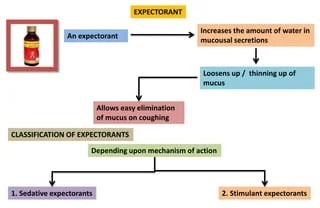A nurse is evaluating teaching a client who has a new prescription for montelukast to treat asthma. Which of the following statements by the client indicates an understanding of the teaching?
"I'll rinse my mouth after taking this medication.”
"I'll take this medication when I get an asthma attack.”
“I use a spacer device when I inhale this medication."
“I’ll take this medication once a day in the evening.”
The Correct Answer is D
Montelukast is typically prescribed as a once-daily medication for the treatment of asthma. Taking it in the evening can be beneficial as it helps to control asthma symptoms throughout the day and night. It is important to follow the prescribed dosing schedule provided by the healthcare provider.
The other statements mentioned are incorrect:
A. "I'll rinse my mouth after taking this medication": Rinsing the mouth after taking montelukast is not necessary as it is not an inhaled medication. Rinsing the mouth is typically recommended after using inhaled corticosteroids to reduce the risk of oral thrush.
B. "I'll take this medication when I get an asthma attack": Montelukast is a long-term control medication used to prevent asthma attacks and manage chronic asthma symptoms. It is not intended for immediate relief during an asthma attack.
C. "I use a spacer device when I inhale this medication": Montelukast is not an inhaled medication, so the use of a spacer device is not applicable. Spacer devices are commonly used with inhaled medications to improve the delivery of the medication to the lungs.
Nursing Test Bank
Naxlex Comprehensive Predictor Exams
Related Questions
Correct Answer is ["B","D"]
Explanation
The nurse should include the following information in the teaching about medication reconciliation:
● Provide a list of the client's current medications during admission to a healthcare facility.
● Provide a list of the client's current medications during the change of shift report.
Medication reconciliation is a critical process that involves comparing the medications a patient is currently taking with the medications ordered or intended to be prescribed. It helps ensure accurate and safe medication management during transitions of care. The nurse should emphasize the importance of providing a list of the client's current medications during admission to a healthcare facility. This information helps establish a baseline for the patient's medication regimen and allows healthcare providers to verify and reconcile the medications accurately.
Additionally, the nurse should instruct the class to provide a list of the client's current medications during the change of shift report. This allows for effective communication between healthcare providers, ensuring continuity of care and preventing medication errors or omissions.
While not specifically mentioned in the options, it is important to note that medication reconciliation should be performed at various points, including during the discharge process from a healthcare facility. Discharge medication reconciliation helps ensure a smooth transition to home or another healthcare setting, reduces the risk of medication-related issues, and promotes patient safety and adherence to the prescribed medication regimen.
Regarding over-the-counter medications, it is crucial to include them in the medication reconciliation process. Over-the-counter medications can interact with prescription medications and have potential side effects. Including them in the reconciliation report helps identify any potential interactions or duplications and ensures comprehensive medication management.
Correct Answer is C
Explanation
Expectorants are medications that help to loosen and thin mucus in the respiratory tract, making it easier to cough up and expel. They work by increasing the production of respiratory tract secretions, which helps to hydrate and thin the mucus, making it less sticky and easier to clear from the airways. By stimulating the production and secretion of mucus, expectorants promote coughing and facilitate the removal of excess mucus and phlegm from the respiratory system.
It's important to note that expectorants are primarily used for productive coughs (coughs that produce phlegm or mucus). If the cough is dry and non-productive, other types of cough suppressants or remedies may be more appropriate.
Regarding the other options:
Reduces inflammation: Expectorants do not have a direct effect on reducing inflammation in the respiratory tract. Anti-inflammatory medications such as glucocorticoids are typically used for reducing inflammation in conditions like asthma or chronic obstructive pulmonary disease (COPD).
Dries mucous membranes: Expectorants do not have a drying effect on mucous membranes. In fact, they work to increase the hydration and fluidity of respiratory secretions.
Suppresses the urge to cough: Expectorants do not suppress the urge to cough. They promote coughing by facilitating the clearance of mucus and phlegm from the airways. Cough suppressants, on the other hand, are medications used to relieve a dry, non-productive cough by suppressing the cough reflex.

Whether you are a student looking to ace your exams or a practicing nurse seeking to enhance your expertise , our nursing education contents will empower you with the confidence and competence to make a difference in the lives of patients and become a respected leader in the healthcare field.
Visit Naxlex, invest in your future and unlock endless possibilities with our unparalleled nursing education contents today
Report Wrong Answer on the Current Question
Do you disagree with the answer? If yes, what is your expected answer? Explain.
Kindly be descriptive with the issue you are facing.
